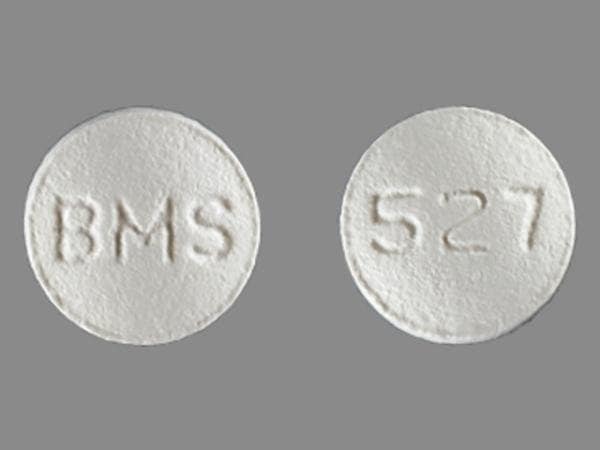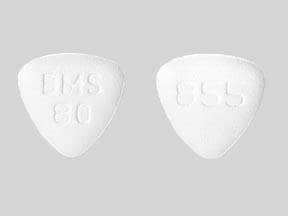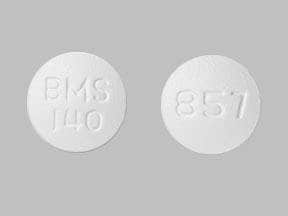What is dasatinib used for?
- Dasatinib is used to treat a type of leukemia.
- Dasatinib may be given to you for other reasons. Talk to your doctor.
Before taking dasatinib, tell your doctor:
- If you are allergic to dasatinib; any part of this medicine; or any other drugs, foods, or substances. Tell your doctor about the allergy and what signs you had.
- If you have any of these health problems: Low potassium or magnesium levels.
- If you take any other drugs (prescription or OTC, natural products, vitamins). There are many drugs that interact with dasatinib, like certain drugs that are used for infections, seizures, or stomach or bowel problems.
- If you are taking St. John's wort. Do not take St. John's wort with dasatinib. This medicine may not work as well.
- If you are breast-feeding. Do not breast-feed while you take dasatinib and for 2 weeks after your last dose.
This is not a list of all drugs or health problems that interact with dasatinib.
Tell your doctor and pharmacist about all of your drugs (prescription or OTC, natural products, vitamins) and health problems. You must check to make sure that it is safe for you to take dasatinib with all of your drugs and health problems. Do not start, stop, or change the dose of any drug without checking with your doctor.
What are some things I need to know or do while I take dasatinib?
For all patients taking dasatinib:
- Tell all of your health care providers that you take dasatinib. This includes your doctors, nurses, pharmacists, and dentists.
- You may have more chance of getting an infection. Wash hands often. Stay away from people with infections, colds, or flu.
- If you have upset stomach, throwing up, diarrhea, or are not hungry, talk with your doctor. There may be ways to lower these side effects.
- Have blood work checked as you have been told by the doctor. Talk with the doctor.
- Do not take antacids within 2 hours before or 2 hours after taking dasatinib.
- If you are allergic to lactose or have lactose intolerance, talk with your doctor.
- Avoid grapefruit and grapefruit juice.
- You may bleed more easily. Be careful and avoid injury. Use a soft toothbrush and an electric razor. Rarely, some bleeding problems have been deadly.
- Call your doctor right away if you have any signs of bleeding problems, like bruising; black, tarry, or bloody stools; bleeding gums; blood in the urine; coughing up blood; cuts that take a long time to stop bleeding; feel dizzy; feeling very tired or weak; nosebleeds; pain or swelling; throwing up blood or throw up that looks like coffee grounds; or very bad headache.
- This medicine may cause you to swell or keep fluid in your body. Tell your doctor if you have swelling, weight gain, or trouble breathing.
- This medicine may raise the chance of a very bad lung problem (pulmonary arterial hypertension). This may happen any time after starting dasatinib, even after more than 1 year of taking it. Talk with the doctor.
- Have your heart and lung function checked. Talk with your doctor.
- If you are 65 or older, use dasatinib with care. You could have more side effects.
- This medicine may affect fertility. Fertility problems may lead to not being able to get pregnant or father a child.
- Pregnant women must not handle crushed or broken tablets. Talk with the doctor.
- This medicine may cause harm to the unborn baby if you take it while you are pregnant.
- Use birth control that you can trust to prevent pregnancy while taking dasatinib and for 1 month after stopping dasatinib.
- If you get pregnant while taking dasatinib or within 1 month after your last dose, call your doctor right away.
Children:
- If giving dasatinib to your child and your child's weight changes, talk with the doctor. The dose of dasatinib may need to be changed.
- This medicine may affect growth in children and teens in some cases. They may need regular growth checks. Talk with the doctor.
How is dasatinib best taken?
Use dasatinib as ordered by your doctor. Read all information given to you. Follow all instructions closely.
- Take dasatinib at the same time of day.
- Take with or without food.
- Swallow whole. Do not chew, break, or crush.
- If you have trouble swallowing, talk with your doctor.
- Keep taking dasatinib as you have been told by your doctor or other health care provider, even if you feel well.
- You will need to take special care when handling dasatinib. Check with the doctor or pharmacist to see how to handle dasatinib.
What do I do if I miss a dose?
- Skip the missed dose and go back to your normal time.
- Do not take 2 doses at the same time or extra doses.
What are the side effects of dasatinib that I need to call my doctor about immediately?
WARNING/CAUTION: Even though it may be rare, some people may have very bad and sometimes deadly side effects when taking a drug. Tell your doctor or get medical help right away if you have any of the following signs or symptoms that may be related to a very bad side effect:
- Signs of an allergic reaction, like rash; hives; itching; red, swollen, blistered, or peeling skin with or without fever; wheezing; tightness in the chest or throat; trouble breathing, swallowing, or talking; unusual hoarseness; or swelling of the mouth, face, lips, tongue, or throat.
- Signs of infection like fever, chills, very bad sore throat, ear or sinus pain, cough, more sputum or change in color of sputum, pain with passing urine, mouth sores, or wound that will not heal.
- Signs of low phosphate levels like change in eyesight, feeling confused, mood changes, muscle pain or weakness, shortness of breath or other breathing problems, or trouble swallowing.
- Very bad belly pain.
- Very upset stomach or throwing up.
- Severe diarrhea.
- Feeling very tired or weak.
- Numbness or tingling in the hands or feet.
- Seizures.
- A very bad skin reaction (Stevens-Johnson syndrome/toxic epidermal necrolysis) may happen. It can cause very bad health problems that may not go away, and sometimes death. Get medical help right away if you have signs like red, swollen, blistered, or peeling skin (with or without fever); red or irritated eyes; or sores in your mouth, throat, nose, or eyes.
- Patients with cancer who take dasatinib may be at a greater risk of getting a severe health problem called tumor lysis syndrome (TLS).This may lead to death. Call your doctor right away if you have a fast or abnormal heartbeat; any passing out; trouble passing urine; muscle weakness or cramps; upset stomach, throwing up, diarrhea, or not able to eat; or feel sluggish.
- Heart problems like a type of abnormal heartbeat (prolonged QT interval) have happened with dasatinib. Call your doctor right away if you have chest pain or pressure, a fast or abnormal heartbeat, shortness of breath, a big weight gain, swelling in the arms or legs, or very bad dizziness or passing out.
What are some other side effects of dasatinib?
All drugs may cause side effects. However, many people have no side effects or only have minor side effects. Call your doctor or get medical help if any of these side effects or any other side effects bother you or do not go away:
- Headache.
- Belly pain.
- Upset stomach or throwing up.
- Diarrhea.
- Not hungry.
- Feeling tired or weak.
- Muscle or joint pain.
- Constipation.
- Pain in arms or legs.
These are not all of the side effects that may occur. If you have questions about side effects, call your doctor. Call your doctor for medical advice about side effects.
You may report side effects to the FDA at 1-800-332-1088. You may also report side effects at https://www.fda.gov/medwatch.
If overdose is suspected:
If you think there has been an overdose, call your poison control center or get medical care right away. Be ready to tell or show what was taken, how much, and when it happened.
Dasatinib Images
How do I store and/or throw out dasatinib?
- Store at room temperature.
- Store in a dry place. Do not store in a bathroom.
- Keep all drugs in a safe place. Keep all drugs out of the reach of children and pets.
- Throw away unused or expired drugs. Do not flush down a toilet or pour down a drain unless you are told to do so. Check with your pharmacist if you have questions about the best way to throw out drugs. There may be drug take-back programs in your area.
Consumer information use and disclaimer
- If your symptoms or health problems do not get better or if they become worse, call your doctor.
- Do not share your drugs with others and do not take anyone else's drugs.
- Some drugs may have another patient information leaflet. Check with your pharmacist. If you have any questions about dasatinib, please talk with your doctor, nurse, pharmacist, or other health care provider.
- If you think there has been an overdose, call your poison control center or get medical care right away. Be ready to tell or show what was taken, how much, and when it happened.
This information should not be used to decide whether or not to take dasatinib or any other medicine. Only the healthcare provider has the knowledge and training to decide which medicines are right for a specific patient. This information does not endorse any medicine as safe, effective, or approved for treating any patient or health condition. This is only a brief summary of general information about this medicine. It does NOT include all information about the possible uses, directions, warnings, precautions, interactions, adverse effects, or risks that may apply to dasatinib. This information is not specific medical advice and does not replace information you receive from the healthcare provider. You must talk with the healthcare provider for complete information about the risks and benefits of using this medicine.










